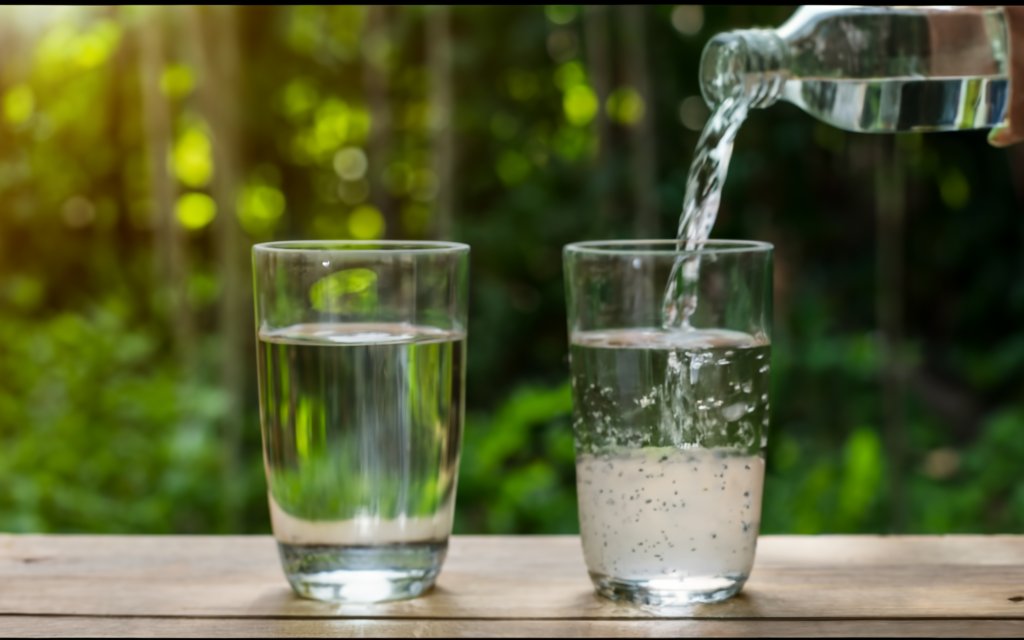Water is essential for our survival, and ensuring its purity and safety is a priority for everyone. With numerous options available, understanding the differences between filtered and purified water can be confusing. Is filtered water the same as purified water? This question is more critical than ever as people strive to make healthier choices for their families.
In this comprehensive guide, we’ll delve into the nuances of filtered and purified water, breaking down their definitions, processes, benefits, and which one might be best for you.
What is Filtered Water?
Filtered water refers to water that has passed through a device or substance to remove impurities. This process can vary in complexity, ranging from simple carbon filters to more advanced systems. Here are some key points about filtered water:
- Simple Filtration: Often used in household pitcher filters, these remove larger particles and some contaminants.
- Advanced Filtration Systems: These can include multi-stage filters that remove a wider range of impurities, including chlorine, lead, and bacteria.
Filtered water is generally considered safe for daily consumption and is a popular choice for improving taste and odor.
What is Purified Water?
Purified water goes through a more rigorous process to eliminate nearly all contaminants. Purification methods can include:
- Reverse Osmosis: Forces water through a semipermeable membrane, removing a broad spectrum of impurities.
- Distillation: Boils water to produce steam, leaving contaminants behind, and then condenses the steam back into water.
- Deionization: Uses ion-exchange resins to remove mineral ions.
Purified water meets the highest standards of purity and is often used in medical and laboratory settings, as well as for those with specific health concerns.
Is Filtered Water the Same as Purified Water?
Now that we understand the basics, let’s address the main question: Is filtered water the same as purified water?
The answer is simple no.
While both processes aim to clean water, they differ significantly in the extent of impurity removal. Filtered water is less thorough compared to purified water, which undergoes extensive treatment to eliminate almost all contaminants.
Benefits of Filtered Water
- Cost-Effective: Generally cheaper than purification systems.
- Improves Taste and Odor: Effective at removing chlorine and other substances that affect taste.
- Easy to Use: Simple systems like pitcher filters are user-friendly and require minimal maintenance.
Benefits of Purified Water
- Superior Purity: Removes a wider range of contaminants, including bacteria and viruses.
- Healthier Choice: Ideal for those with weakened immune systems or specific health conditions.
- Versatile Use: Suitable for drinking, cooking, and even medical applications.
Filtration vs. Purification: Which is Better?
Choosing between filtered and purified water depends on your specific needs and circumstances. Here are some factors to consider:
- Health Concerns: If you have specific health issues, purified water may be the safer option.
- Budget: Filtered water systems are typically more affordable.
- Water Quality: The quality of your local water supply can influence your choice. If your tap water is heavily contaminated, purification might be necessary.
Types of Water Filtration Systems
Understanding the various types of filtration systems can help you make an informed decision. Common systems include:
- Activated Carbon Filters: Remove chlorine, sediments, and volatile organic compounds (VOCs).
- Ceramic Filters: Excellent for removing bacteria and protozoa.
- UV Filters: Use ultraviolet light to kill bacteria and viruses.
- Ion Exchange Filters: Remove hard water minerals like calcium and magnesium.
Types of Water Purification Systems
Purification systems are more complex and thorough. Here are some common types:
- Reverse Osmosis Systems: Highly effective in removing a broad range of contaminants.
- Distillation Units: Provide very high-purity water but can be slow and energy-intensive.
- Ultrafiltration: Uses a membrane to remove bacteria, viruses, and other microorganisms.
The Environmental Impact
When considering filtered versus purified water, it’s also important to think about the environmental impact:
- Filtered Water: Generally produces less waste, especially with reusable filters.
- Purified Water: Some methods, like reverse osmosis, can waste water and consume more energy.
Practical Applications
Different situations may call for either filtered or purified water. For everyday drinking and cooking, filtered water is usually sufficient. However, for medical uses or areas with highly contaminated water, purified water is preferable.
Frequently Asked Questions (FAQs)
Can purified water be used for all purposes?
Yes, purified water is versatile and can be used for drinking, cooking, and even in medical settings.
How often should water filters be replaced?
This depends on the type of filter and usage. Typically, filters should be replaced every 2-6 months.
Is distilled water the same as purified water?
Distilled water is a type of purified water, produced through distillation, one of the many purification methods.
Which is more cost-effective: filtration or purification?
Filtration systems are generally more affordable upfront and in the long run compared to purification systems.
Conclusion
In conclusion, while filtered water and purified water both aim to make water safer and more pleasant to consume, they are not the same. Filtered water is ideal for everyday use, offering an affordable and effective way to improve taste and remove common contaminants. Purified water, on the other hand, provides the highest level of cleanliness, making it suitable for sensitive health needs and specialized applications. By understanding the differences and benefits of each, you can make an informed decision that best meets your needs and preferences.
Choosing the right water treatment system can significantly impact your health and well-being. Whether you opt for filtered or purified water, ensuring you have access to clean, safe water is a crucial step towards a healthier life.


I would like to reach you out physically.